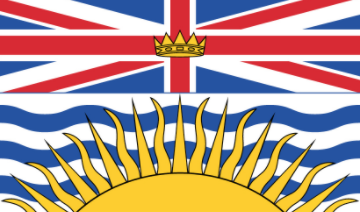
Bob Mackin
There couldn’t be a worse time to sell British Columbians a bid for the 2030 Winter Olympics, and not just because it’s the middle of summer.
The only thin ice or blizzard in these parts right now are metaphors that can be used to describe where the Canadian Olympic Committee’s Four Host First Nations-blessed bid stands and the sheer volume of challenges it faces.
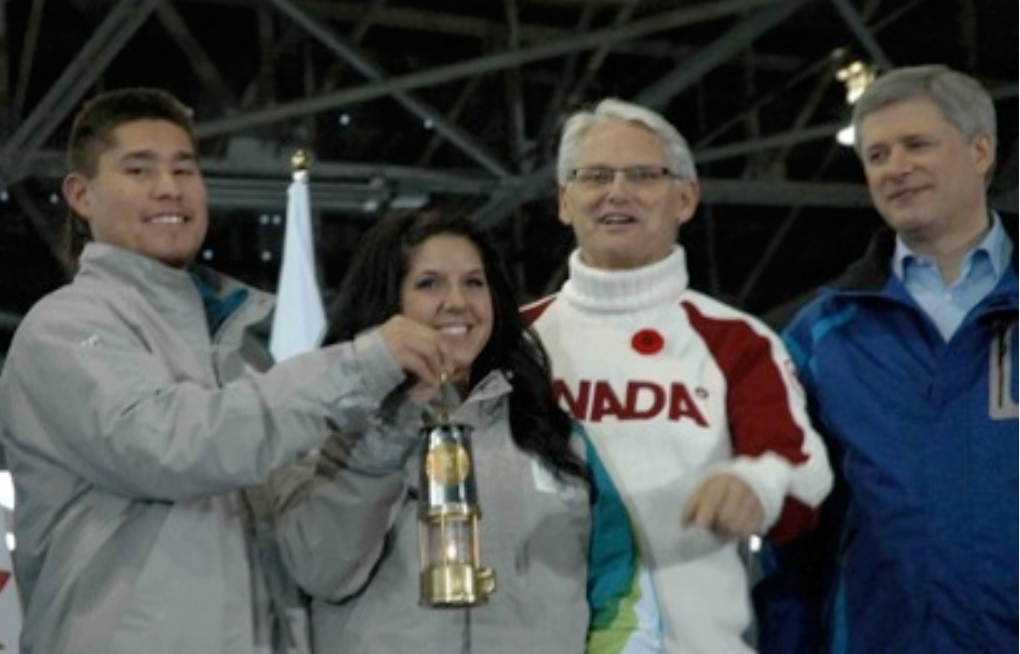
Premier Gordon Campbell and Prime Minister Stephen Harper at Victoria International Airport on Oct. 30, 2009 (Bob Mackin)
Vancouver Deputy City Manager Karen Levitt recommends city councillors do nothing until senior governments do something to back the bid. B.C. NDP tourism and sport minister Melanie Mark wants a mini business plan on her desk by Aug. 15 before Victoria decides whether to underwrite another $4 billion-plus mega-event.
July of 2022 is a time of political, economic, social and environmental vulnerability. This is the flip-side of July of 2001, when newly elected B.C. Liberal Premier Gordon Campbell seized upon the International Olympic Committee’s choice of Beijing and rejection of Toronto for the 2008 Olympics. Sod-turning, ribbon-cutting Campbell went all-in to bring the Winter Olympics to Vancouver in 2010 and won two more elections.
It could be said there were too many reasons to say yes to 2010 and there are too many reasons to say no to 2030. Here are some of them.
Can you spare a billion?
It took a full 40 days for Premier John Horgan to backtrack on the Royal B.C. Museum project, expected to cost $1 billion to finish by 2030. It could still happen, but will be on someone else’s desk. Meanwhile, the Olympic bidders say they need at least $1 billion from taxpayers, but concede they don’t really know how much they’ll need because of the long list of “essential services” governments would have to provide in 2030.
Healthcare before Olympics
Remember that bumper sticker from 2003? It could make a comeback. In 2022, some 900,000 British Columbians don’t have a family doctor. (Compare that with the 1.8 million tickets distributed for the 2010 Games.) People around the province are complaining of long wait times for ambulances and treatment at emergency rooms. The system is crumbling under the weight of the COVID-19 pandemic, overdose epidemic and an aging population. Horgan failed to convince Prime Minister Justin Trudeau to bring money to the Victoria Premiers’ summit earlier this month.
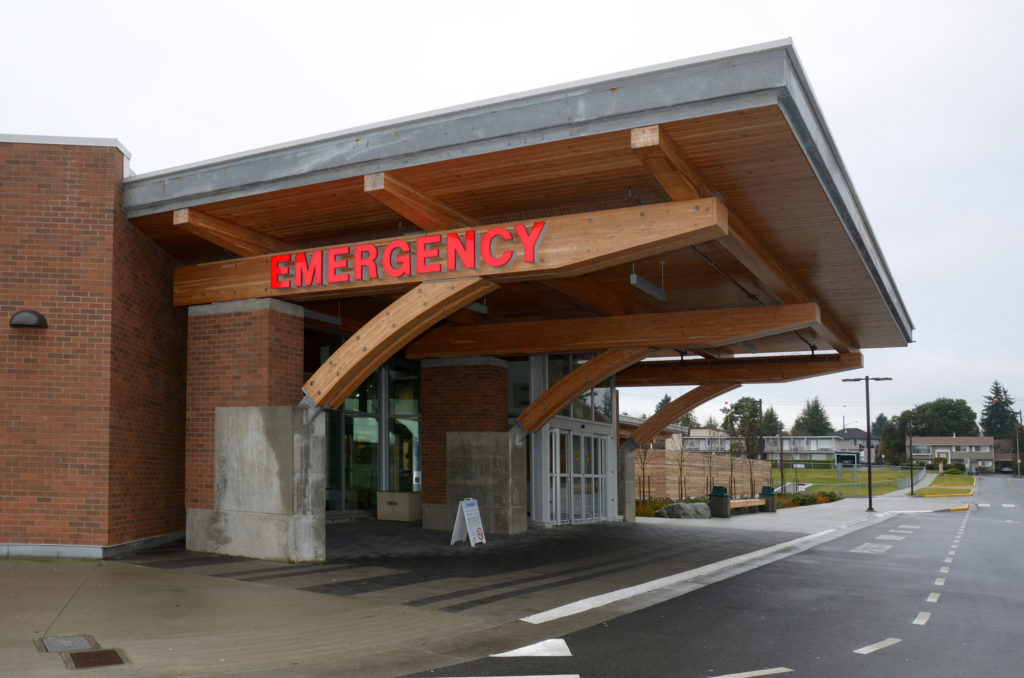
Emergency, in more ways than one, at Nanaimo Regional General Hospital.
Inflation
The 33,000 government workers in the B.C. General Employees’ Union could go on strike this summer. With inflation in B.C. a Canada-leading 8.1%, they’re demanding a cost of living adjustment and already gave a cold shoulder to the government’s offer of a 11% raise over three years and a $2,500 signing bonus. They’re a fraction of the total 400,000 public sector workers whose contracts expire in 2022. For every 1% increase in the total B.C. public sector payroll, the cost to taxpayers rises $386 million.
Revolving door
Municipal elections are Oct. 15. The NDP is scheduled to choose a new leader to replace Horgan by Dec. 3. Olympics boosters might dread the words “Premier David Eby”; he was one of the biggest critics of Vancouver 2010 while at the B.C. Civil Liberties Association. And could there be another federal election, after the opposition Conservatives name a new leader on Sept. 10? A lack of stability in high offices won’t help the cause of anyone knocking on doors in Ottawa or Victoria looking for more than $1 billion and deficit insurance.
Let us vote
Greece gave us the Olympics and democracy. Coun. Colleen Hardwick says they should go together, like they did in 2003 when almost two-thirds of Vancouver voters said yes to the 2010 bid. Mayor Kennedy Stewart thwarted Hardwick’s first motion when he falsely claimed a plebiscite on the Oct. 15 ballot would violate a non-binding agreement with Whistler and the Musqueam, Squamish, Tsleil-Waututh and Lil’wat nations. What’s really going on? The COC privately told the six parties that any referendum this year would cause the IOC to reject a Canadian bid for 2030. The COC is still licking its wounds after voters in 1988 host city Calgary rejected the 2018 bid for the 2026 Winter Games.
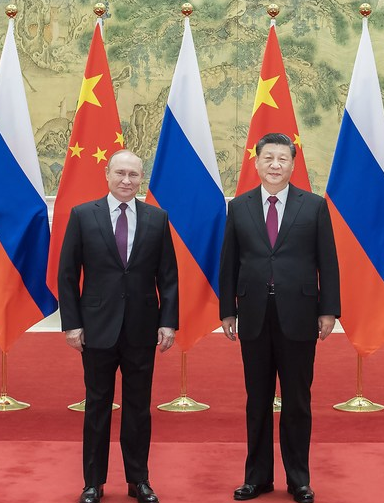
Vladimir Putin (left) and Xi Jinping during the Beijing 2022 Winter Olympics (PRC)
Geopolitics
Vladimir Putin has a habit of starting wars in Olympic years. In 2008, Russia invaded Georgia. In 2014 it was Ukraine’s Crimea peninsula. In 2022, he decided to take on the rest of Ukraine. That came in the wake of his visit with Xi Jinping at the Beijing Winter Olympics where the dictators renewed their bromance with a “no limits” accord. Food and fuel shortages and inflation are sparking upheaval around the globe. Canada slapped sanctions on Russia, which is sidelined by many international sports federations, but not the IOC. Meanwhile, Xi tossed aside Hong Kong’s one country/two systems pledge and covets Taiwan.
B.C.’s megaproject mania
The NDP is building or expanding hospitals in Vancouver’s False Creek Flats ($2.174 billion), Cloverdale ($1.72 billion), Burnaby ($1.3 billion) and Richmond ($860 million). A new Pattullo Bridge is underway ($1.37 billion) and a new Massey Tunnel later ($4.15 billion) is on the drawing board. Meanwhile, the Broadway Subway is happening ($2.83 billion) and Langley to Surrey SkyTrain ($3.94 billion) has the go-ahead. The $16 billion Site C is half-finished. Metro Vancouver is planning to build a new sewage plant on Iona Island for $10 billion, but first it has to finish the $1.06 billion project in North Vancouver. Those add up to $45.4 billion but will cost more due to the rising cost of borrowing. Then there’s the need to build better dikes around Abbotsford, finish the Coquihalla highway flood and landslide repairs and rebuild burned down town Lytton.
Sport City
Vancouver was supposed to host its first Formula E race around Eastern False Creek on July 2. It was cancelled and, as of now, isn’t going to happen in 2023, either. But the “dance card” is looking rather full. The Laver Cup tennis tournament is coming in 2023 and there likely will be a Grey Cup week in 2024. Prince Harry’s Invictus Games will be co-hosted by Vancouver and Whistler in 2025 and Vancouver is one of 16 host cities for World Cup matches in 2026.
Game misconduct
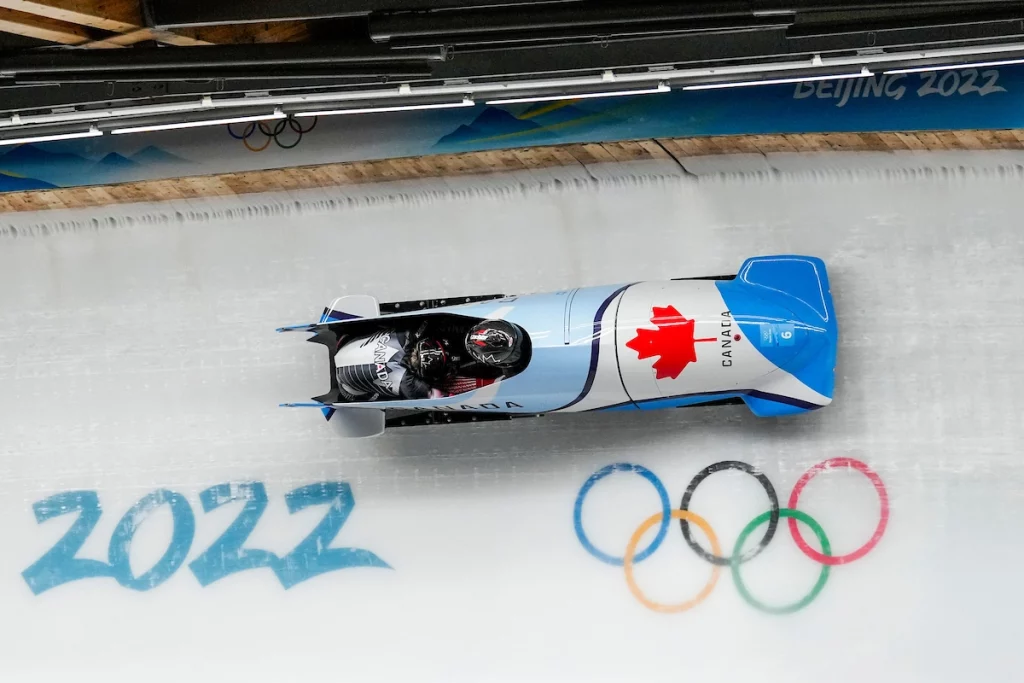
After a disappointing finish at the Beijing 2022 Winter Olympics, athletes demanded change atop Bobsleigh Canada Skeleton (COC)
Canada’s sport system enjoyed a boom after Vancouver 2010, where the men’s hockey team won the 14th and final gold medal in dramatic fashion. Bobsleigh Canada Skeleton, Gymnastics Canada and the Canadian Soccer Association athletes have since blown the whistle about abuse and governance issues. The biggest scandal involves the country’s flagship Hockey Canada, which settled out of court with a woman who sued for $3.5 million after an alleged sexual assault by members of the 2018 junior national team. The organization with a secret account for misconduct claims has seen its federal funding frozen, and faces an audit and NHL investigation. Sponsors Canadian Tire, Esso, Scotiabank, Telus and Tim Hortons have called a time out.
Where’s the 2010 bill?
The total all-in cost of building and staging the 2010 Games was estimated at $8 billion. The biggest operational line item was the RCMP-led security, at almost $1 billion. City taxpayers spent $554.3 million, not including the bailout of the $1.1 billion Olympic Village, which was finally paid-off in 2014. B.C.’s Auditor General did not conduct a post-Games audit and the 2010 organizing committee, known as VANOC, was not governed by the freedom of information law. VANOC transferred its board minutes and financial documents to the Vancouver City Archives under a contract that says you can’t see them until fall 2025 — more than two years after the IOC wants to name the 2030 host.
Support theBreaker.news for as low as $2 a month on Patreon. Find out how. Click here.











